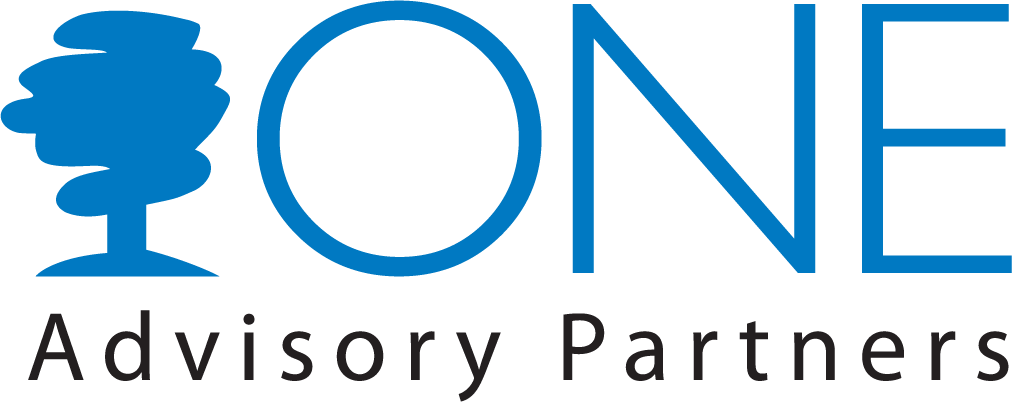Ron Sanders · ONE Advisory Partners, LLC

Overlooked Retirement Expenses (And How to Plan for Them)
How much will a comfortable retirement cost you?
You may already have a number in mind, but the real total can be higher than most people expect.
While it is true that about 45% of retirees who stop working at 65 may run out of money,1 that outcome is not inevitable. The key is knowing what your retirement savings will need to cover beyond the obvious expenses and making choices that protect your financial future.
If you are nearing retirement or already in it, now is the time to test your plan against real-life scenarios. Let’s look at some common – but often overlooked – expenses that can quietly shrink retirement savings and how to plan for them before they do.
Not receiving our newsletter?
Get insightful info on finances and more in your inbox every month with the
VISUAL INSIGHTS NEWSLETTER
5 Expenses Many Retirees Overlook

Overspending Day to Day
Spending habits can shift quickly in retirement, and small changes can have a big impact over time. Today, more retirees are feeling the pinch from day-to-day expenses that outpace their plans.
-
Nearly 1 in 3 retirees spend more than they can afford—a rate almost double that of 2020.2
-
Only 59% have at least three months of emergency savings, down 10% since 2022.2
-
About 36% face unexpected expenses that strain their budgets.2
Additional things to watch out for include gradual lifestyle upgrades that increase fixed monthly costs, helping family members without adjusting your budget, and rising costs for essentials like utilities, groceries, and transportation.
The good news?
By keeping a close eye on spending patterns and building a flexible budget that includes a cushion for surprises, you can enjoy retirement without sacrificing long-term financial security.

Underestimating Healthcare Costs
Healthcare costs can be one of the most underestimated expenses in retirement, especially as prices for care continue to rise year after year. Even with Medicare, out-of-pocket costs for premiums, prescriptions, and uncovered services can quickly add up.
-
A 65-year-old retiring in 2024 could expect to spend about $165,000 on health care throughout retirement, not including long-term care.3
-
A healthy couple retiring at 65 may see annual costs of $14,500, which could grow to $49,300 a year by age 85 with inflation.4
-
In 2023, the average cost of a private nursing home room was $116,800 a year, with assisted living averaging $68,600.5
Additional things to watch out for include long-term care needs that arise suddenly, rising premiums for supplemental insurance, and new diagnoses that require costly treatments.
Including realistic healthcare projections in your retirement plan and reviewing them regularly can help ensure that medical expenses remain manageable and that your savings can support the lifestyle you want.

Overlooking Housing Expenses
Housing costs in retirement are not always as stable as many expect. Property taxes, maintenance, and even the costs of relocating can take a larger bite out of savings than planned.
-
In 2021, nearly 11.2 million older adults spent at least 30% of their household income on housing, marking an all-time high.6
-
This reflects a ~15.5% increase in housing cost burdens for older adults when compared to 2016.6
-
Downsizing or relocating often brings added expenses such as moving costs, closing fees, and HOA dues.
Additional things to watch out for include rising utility bills, unexpected home repairs, and insurance premiums that increase over time.
Planning for both the predictable and surprise costs of housing can help protect your savings and give you more flexibility to make the living choices you want in retirement.

Supporting Adult Children Financially
About 50% of parents financially support their adult children on a routine basis. That includes retirees, and it works out to an average of $1,474 a month going out to adult children.7
Most of that money pays for essentials, including groceries, cellphone bills, health insurance, medical care, and housing costs.7
The tradeoff?
Many parents end up sacrificing their own plans and long-term security to support their adult children. In fact, to continue supporting them:
-
50% say they would deplete their retirement savings.
-
35% say they would retire later.
-
17% would come out of retirement and go back to work.7
Good intentions aside, prioritizing this support can take a serious toll, quietly straining retirees' savings and financial independence.
Planning ahead for how and when to offer financial help can make it possible to support loved ones while still safeguarding your own long-term security.

Ignoring Hidden Tax Triggers
If you don't have a tax strategy in retirement, you could be in for financial penalties, higher costs, and a faster drawdown of your savings.
That can be an issue on multiple fronts, including:
-
Required Minimum Distributions (RMDs): Missing an RMD? If you don’t withdraw the full required amount by the deadline, the amount not taken could be hit with a 25% excise tax (although this drops to 10% if corrected within two years).8
-
Social Security benefits: You can start claiming benefits at age 62. If you were born after 1960, your full retirement age will be 67. Claiming benefits before full retirement age can shrink monthly payments by about 30%. That's a permanent reduction that often forces retirees to draw more from their savings to make up the difference.9
-
Income-Related Monthly Adjustment Amount (IRMAA): If your income exceeds certain thresholds, your Medicare Part B and Part D premiums can shoot up. The higher your modified adjusted gross income (MAGI) is, the higher those surcharges (IRMMA) could be. That could add hundreds or even thousands to your annual healthcare costs.10
These tax pitfalls can pile up fast, leaving less savings to do the things you truly enjoy in retirement. Creating a proactive tax strategy before you retire can help you keep more of what you’ve earned and make your money last longer.
The goal is not to eliminate every risk. It is to create a plan that is flexible, resilient, and aligned with the life you want.
Planning for the Known & Unknown: How to Manage Retirement Costs with Greater Peace of Mind
What expenses surprised you the most?
Did they make you rethink your retirement plan?
However you answer, one thing is certain: retirement expenses can change faster than most people expect.
If you overlook them, they can gradually chip away at your savings, even if you have planned well. Lifestyle, healthcare, housing, taxes, and family support often get the most attention, but the real curveballs can come from the background: inflation, travel splurges, unexpected caregiving, new diagnoses, late-in-life divorce, or even scams targeting older adults.
This is why retirement planning is about more than just tracking fixed costs. It is about spotting your financial blind spots early, building in room for the unexpected, and making sure your plan can absorb shocks without throwing your lifestyle off track.
The goal is not to eliminate every risk. It is to create a plan that is flexible, resilient, and aligned with the life you want.
Review it regularly, adjust it when life changes, and know that preparation today can give you more freedom and peace of mind tomorrow.
Sincerely,
Ron Sanders
ONE Advisory Partners, LLC
https://www.oneadvisorypartners.com
P.S. Sign up for my emails. My subscribers get my best insights.

Ron Sanders
ONE Advisory Partners, LLC
Not receiving our newsletter?
Get insightful info on finances and more in your inbox every month with the
VISUAL INSIGHTS NEWSLETTER

Ron Sanders
ONE Advisory Partners, LLC
.png)
.png)

-
MorningStar, 2024 [URL: https://www.morningstar.com/news/marketwatch/20240803255/almost-half-of-those-who-retire-at-65-could-run-out-of-money]
-
Fidelity, 2024 [URL: https://newsroom.fidelity.com/pressreleases/fidelity-investments--releases-2024-retiree-health-care-cost-estimate-as-americans-seek-clarity-arou/s/7322cc17-0b90-46c4-ba49-38d6e91c3961]
-
Insurance Newsnet, 2023 [URL: https://insurancenewsnet.com/innarticle/retirement-health-care-planning-and-medicare-premiums-advisor-takeaways-for-2024]
-
Genworth, 2024 [URL: https://investor.genworth.com/news-events/press-releases/detail/972/genworth-releases-cost-of-care-survey-results-for-2023]
-
Joint Center for Housing Studies of Harvard University, 2023 [URL: https://www.jchs.harvard.edu/sites/default/files/reports/files/Harvard_JCHS_Housing_Americas_Older_Adults_2023.pdf]
-
Savings.com, 2025 [URL: https://www.savings.com/insights/financial-support-for-adult-children-study]
-
IRS, 2025 [URL: https://www.irs.gov/retirement-plans/retirement-plan-and-ira-required-minimum-distributions-faqs]
-
Social Security Administration (SSA), 2025 [URL: https://www.ssa.gov/pubs/EN-05-10024.pdf]
-
SSA, 2024 [URL: https://secure.ssa.gov/poms.nsf/lnx/0601101020]
Risk Disclosure: Investing involves risk including the potential loss of principal. No investment strategy can guarantee a profit or protect against loss in periods of declining values. Past performance does not guarantee future results.
This material is for information purposes only and is not intended as an offer or solicitation with respect to the purchase or sale of any security. The content is developed from sources believed to be providing accurate information; no warranty, expressed or implied, is made regarding accuracy, adequacy, completeness, legality, reliability, or usefulness of any information. Consult your financial professional before making any investment decision. For illustrative use only.
This information is not intended to be a substitute for specific individualized tax advice. We suggest that you discuss your specific situation with a qualified tax professional.
DISCLAIMER: ONE Advisory Partners, LLC (ONE) is a registered investment advisory firm. Nothing posted by ONE on Linkedin, Facebook, Twitter or any other website or social network (“Social Media”) should be construed as a solicitation, offer, or recommendation, to acquire or dispose of any investment or to engage in any other transaction. Investment advice may only be rendered after the delivery of the appropriate Form ADV-Part 2 and the execution of an agreement by the client and ONE. While we use reasonable efforts to obtain information from sources which we believe to be reliable, nothing contained on our Social Media profiles, in Social Media group conversations, or in other Social Media sections constitutes investment, financial, legal, tax or other advice, nor is it to be relied on in making an investment or other decisions. ONE does not endorse any third party communications posted on Social Media, nor does ONE permit or approve any third party communications related to the ONE’s qualifications as a registered investment adviser. No implicit or explicit comments or statements made by third parties on Social Media should be considered an endorsement of, or a recommendation related to the qualifications of, ONE. ONE expressly disclaims all liability for any viruses or other contamination of your computer system or other device used to access us on Social Media, and expressly disclaims all liability for actions taken or not taken based on any or all of the contents on Social Media.
Become an Insider
Get insightful updates on markets and the world delivered straight to your inbox every month.
No thanks
You're Signed Up!

Ron Sanders
ONE Advisory Partners, LLC
Stay tuned — an email from me is on its way to your inbox right now.
.png)
.png)
.png)